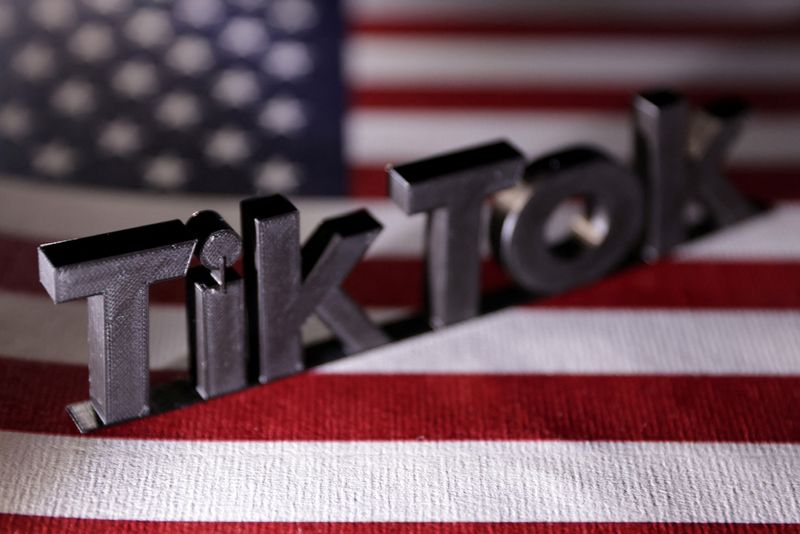TikTok Deal Reached: ByteDance Secures 1 of 7 Board Seats in US Operations, Averting Ban
In a landmark U.S.-China pact that could save TikTok from a looming nationwide ban, ByteDance will appoint one of seven board seats for the app’s restructured U.S. entity, with Americans dominating the remaining six positions, a senior White House official confirmed on September 20, 2025. This ByteDance TikTok board seat arrangement, part of a broader agreement to address national security fears, ensures majority American ownership and control over the platform’s algorithm, marking a pivotal win for President Donald Trump’s diplomatic push amid the TikTok US operations restructuring and ByteDance US stake reduction efforts.
The Agreement Unveiled: Key Terms of the TikTok Overhaul
The deal, hashed out through high-level talks between Trump and Chinese President Xi Jinping, restructures TikTok’s U.S. arm into a joint venture majority-owned by American investors, with ByteDance’s stake capped below 20%. ByteDance, TikTok’s Beijing-based parent, will nominate just one board member, while the other six will be U.S. citizens vetted for national security and cybersecurity expertise.
Central to the pact: TikTok’s powerful recommendation algorithm—long accused of enabling Chinese influence—will be “secured, retrained, and operated in the United States outside of ByteDance’s control.” U.S. users retain global content access, but data and operations stay domestic. Trump delayed the original January 2025 divestiture deadline to mid-December, buying time for this resolution.
The White House emphasized the board’s composition as a safeguard, with ByteDance’s limited role reflecting concessions from its investors like Susquehanna International Group, General Atlantic, and KKR. Trump hailed progress in a Friday call with Xi, teasing an in-person meeting in six weeks.
Background: From Ban Threat to Diplomatic Breakthrough
TikTok’s U.S. saga ignited in 2020 amid espionage concerns, escalating with a 2024 congressional law mandating ByteDance’s divestiture or a full shutdown by January 19, 2025. The app, boasting 170 million American users, faced lawsuits and state-level curbs, but Trump’s re-election—fueled partly by his 15 million TikTok followers—shifted gears toward negotiation over outright prohibition.
Earlier bids, like Oracle’s 2020 proposal, fizzled amid regulatory hurdles. This deal revives elements of that, with U.S. tech giants potentially licensing the algorithm while insulating it from Beijing’s reach. ByteDance, valued at $225 billion, fought the ban tooth and nail, arguing it stifled free speech and innovation.
Reactions: Bipartisan Skepticism Meets Cautious Optimism
White House insiders touted the pact as a “balanced win,” balancing commerce with security, but Democrats like Senate Intelligence Chair Mark Warner demanded transparency: “How does one ByteDance seat ensure no backdoors?” Republicans, including Sen. Marco Rubio, praised Trump’s “deal-making,” viewing it as leverage against China without economic fallout.
TikTok issued a statement welcoming the “path forward,” while ByteDance remained mum. Tech analysts on CNBC called it a “pragmatic compromise,” noting the board’s U.S. majority could preempt lawsuits. On X, #TikTokDeal trended with mixed vibes—users celebrating continuity alongside memes of Trump’s “art of the deal” handshake with Xi.
Critics, including privacy advocates, worry the single ByteDance seat might enable subtle influence, echoing broader U.S.-China tech tensions like Huawei bans.
Impacts on Americans: Data Security, Economy, and Daily Scrolls
For U.S. TikTok faithful—teens crafting dances to adults chasing viral recipes—this deal means uninterrupted access, preserving a $24 billion ad ecosystem and 7 million jobs tied to creators and small businesses. Economically, it shields e-commerce integrations and influencer economies from disruption, potentially boosting GDP by averting a consumer exodus to rivals like Instagram Reels.
Privacy hawks gain from the algorithm’s U.S.-only ops, reducing fears of data funneled to China—vital for 170 million users’ peace of mind. Politically, it burnishes Trump’s “America First” cred, easing trade war strains ahead of APEC talks. Tech-wise, it sets precedents for AI oversight, influencing future apps.
Lifestyle perks? Families keep family vlogs flowing, while educators leverage educational trends without ban-induced blackouts—though some parents still eye screen time warily.
A New Chapter: TikTok’s American Future Unfolds
This ByteDance TikTok board seat compromise, blending U.S. dominance with minimal Chinese input, likely seals TikTok’s stateside survival, dodging a ban that could’ve reshaped social media. As implementation details emerge—possibly by mid-December—the platform eyes growth under watchful American eyes. For creators and scrollers alike, it’s a sigh of relief in the U.S.-China tech tango, but watchdogs warn: True security demands vigilant enforcement in this evolving TikTok US operations saga.
